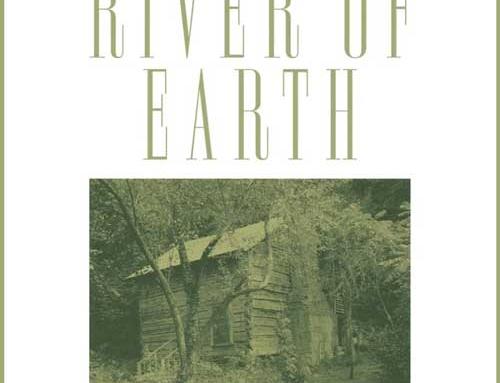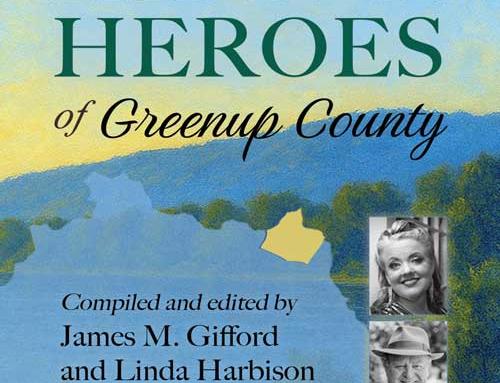The Jesse Stuart Foundation has recently reprinted an attractive soft cover edition of “The Best-Loved Short Stories of Jesse Stuart,” a collection of 34 stories with an introduction by Robert Penn Warren. First published in 1982, this was the last Stuart book during the noted author’s lifetime – although several have been published since his death on February 17, 1984.
 The stories in this volume reveal the broad range of Stuart’s portraits of his mountain, hill, and river people. Some show the dark side of human nature, as they deal with lust, adultery, murder, violence, sadism, and religious fanaticism gone mad. However, Stuart’s affection for the people of northeastern Kentucky and southern Ohio is evident even in these darker stories, and it is vibrantly alive in other stories that present a positive view of humanity.
The stories in this volume reveal the broad range of Stuart’s portraits of his mountain, hill, and river people. Some show the dark side of human nature, as they deal with lust, adultery, murder, violence, sadism, and religious fanaticism gone mad. However, Stuart’s affection for the people of northeastern Kentucky and southern Ohio is evident even in these darker stories, and it is vibrantly alive in other stories that present a positive view of humanity.
These affirmative stories serve as a counterpoint to the brutal realism of his darker stories, and they reveal Stuart’s balanced view of human nature. Ultimately, he is an optimist. The love of the mountain people for their families and neighbors, and their love for life itself comes through clearly in such stories as “The Storm,” “Dark Winter,” “Uncle Fonse Laughed,” and “Men of the Mountains.” Their pride and self-respect come through just as clearly in others such as “Split Cherry Tree.” Elements of the frontier tall tale appear in several of the stories, particularly in “Old Opp and the Devil.” Stuart’s lyrical love of nature shines through in descriptive passages throughout these stories.
The farmer’s love of the land and his attachment to it are memorably dramatized in “This Farm For Sale” and “Clearing in the Sky.” Young love appears in several stories, notably in “The Slipover Sweater,” always a favorite with readers of any age who love a happy ending.
One of the recurrent themes in Stuart’s writings is a conviction of immortality as the ultimate result of nature’s eternal cycles. It appears in several of the stories in this book, particularly in “Uncle Fonse Laughed,” “This is the Place,” “Walk in the Moon Shadows,” and “Another April.”
Stuart’s view of reality is clearly expressed in “Another April,” written and first published in 1942. In this story, an old man (actually Stuart’s grandfather) wanted to see the blossoms of April once again, feel the spring breezes in his face, and talk to an old terrapin that had lived in the garden all summer and under the smokehouse floor all winter, as it had done for many years. The terrapin had the date 1847 carved on its shell; it was older than the grandfather who had reached the advanced age of ninety-one at the time of the story. Stuart wrote that
Maybe there is an understanding between an old man and an old terrapin when each knows his time to be alive is very limited. This sort of a thing haunts me when a dynamic human being, who had been as tough as the tough-butted white oaks on the rugged mountain slopes, is calmed enough by the passing time to sit and talk with a terrapin.
“The Best-Loved Short Stories of Jesse Stuart” – a more than 400-page book – is available at the Jesse Stuart Foundation, 4440 13th Street in Ashland, and can be ordered on this website or by calling 606-326-1667.
By James M. Gifford
JSF CEO & Senior Editor
The Jesse Stuart Foundation has just reprinted an attractive soft cover edition of “The Best-Loved Short Stories of Jesse Stuart,” a collection of 34 stories with an introduction by Robert Penn Warren. First published in 1982, this was the last Stuart book during the noted author’s lifetime – although several have been published since his death on February 17, 1984.
The stories in this volume reveal the broad range of Stuart’s portraits of his mountain, hill, and river people. Some show the dark side of human nature, as they deal with lust, adultery, murder, violence, sadism, and religious fanaticism gone mad. However, Stuart’s affection for the people of northeastern Kentucky and southern Ohio is evident even in these darker stories, and it is vibrantly alive in other stories that present a positive view of humanity.

These affirmative stories serve as a counterpoint to the brutal realism of his darker stories, and they reveal Stuart’s balanced view of human nature. Ultimately, he is an optimist. The love of the mountain people for their families and neighbors, and their love for life itself comes through clearly in such stories as “The Storm,” “Dark Winter,” “Uncle Fonse Laughed,” and “Men of the Mountains.” Their pride and self-respect come through just as clearly in others such as “Split Cherry Tree.” Elements of the frontier tall tale appear in several of the stories, particularly in “Old Opp and the Devil.” Stuart’s lyrical love of nature shines through in descriptive passages throughout these stories.
The farmer’s love of the land and his attachment to it are memorably dramatized in “This Farm For Sale” and “Clearing in the Sky.” Young love appears in several stories, notably in “The Slipover Sweater,” always a favorite with readers of any age who love a happy ending.
One of the recurrent themes in Stuart’s writings is a conviction of immortality as the ultimate result of nature’s eternal cycles. It appears in several of the stories in this book, particularly in “Uncle Fonse Laughed,” “This is the Place,” “Walk in the Moon Shadows,” and “Another April.”
Stuart’s view of reality is clearly expressed in “Another April,” written and first published in 1942. In this story, an old man (actually Stuart’s grandfather) wanted to see the blossoms of April once again, feel the spring breezes in his face, and talk to an old terrapin that had lived in the garden all summer and under the smokehouse floor all winter, as it had done for many years. The terrapin had the date 1847 carved on its shell; it was older than the grandfather who had reached the advanced age of ninety-one at the time of the story. Stuart wrote that
Maybe there is an understanding between an old man and an old terrapin when each knows his time to be alive is very limited. This sort of a thing haunts me when a dynamic human being, who had been as tough as the tough-butted white oaks on the rugged mountain slopes, is calmed enough by the passing time to sit and talk with a terrapin.
“The Best-Loved Short Stories of Jesse Stuart” – a more than 400-page book – is available at the Jesse Stuart Foundation, 4440 13th Street in Ashland, and can be ordered on this website or by calling 606-326-1667.
By James M. Gifford
JSF CEO & Senior Editor




